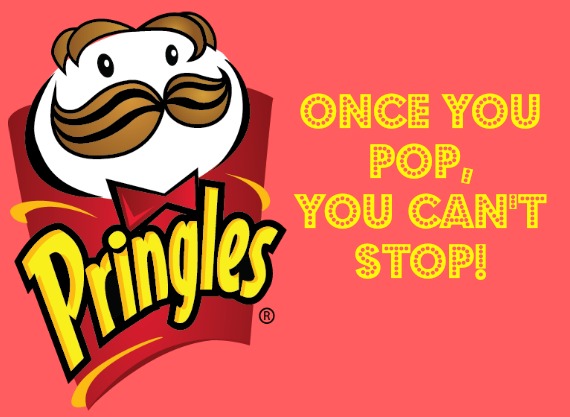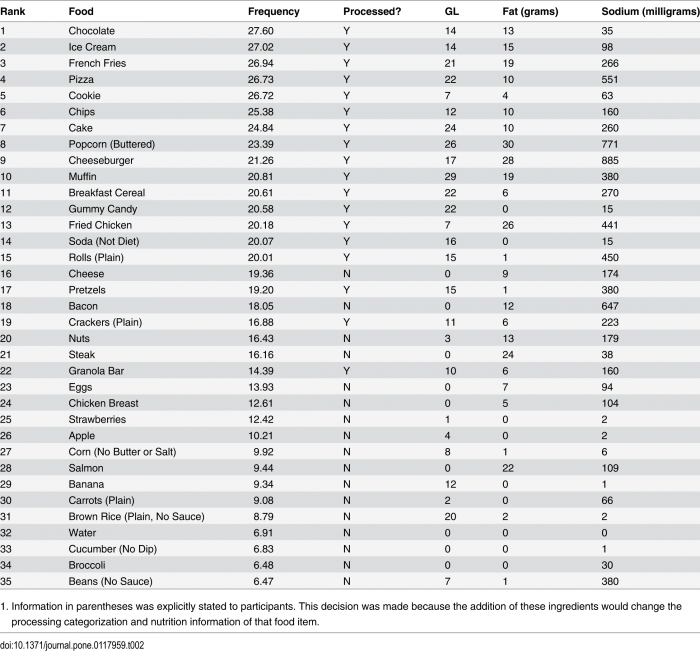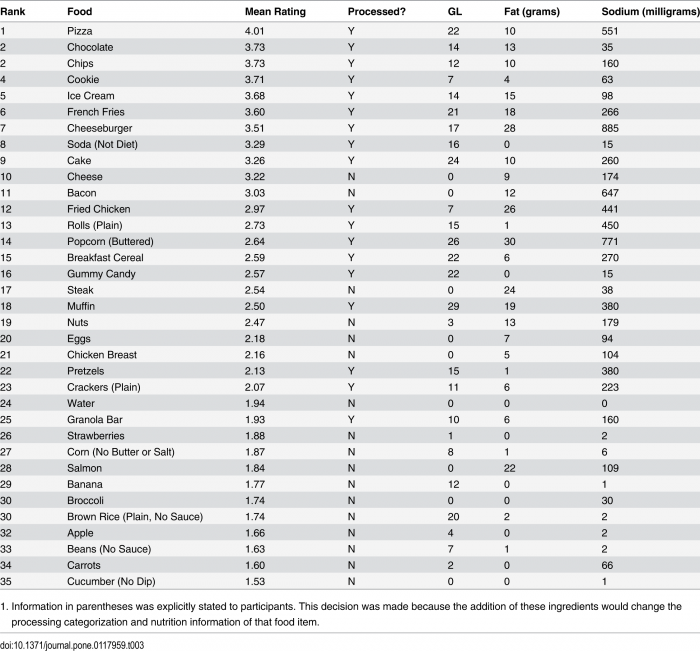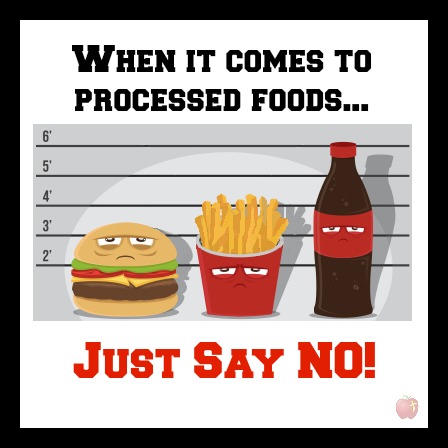It’s the study we’ve all been waiting for: Scientific proof that those Pringles commercials weren’t lying!
(By the way, did anyone else know that Brad Pitt was in a Pringles commercial?! How did I miss this?!)
(It’s ok, take however long you need to process that and come back when you’re ready…)
Wait. Can you really be addicted to food?
According to multiple studies from Yale, the answer is: YES.
In 2009, researchers developed the Yale Food Addiction Scale (YFAS). Their results suggested that behavioral markers of addiction, such as continued use despite negative consequences and unsuccessful attempts to cut down, are evident in problematic eating. Follow-up research found that:
Similar patterns of neural activation are implicated in addictive-like eating behavior and substance dependence: elevated activation in reward circuitry in response to food cues and reduced activation of inhibitory regions in response to food intake.”
However, as Dr. Nora Volkow, director of the National Institute on Drug Abuse notes, the concept is controversial.
It has polarized the [addictions] field.”
Still, Volkow argues in support of food addiction, challenging opponents to:
Compare the proportion of obese people in America to those who are addicted to drugs and then try to argue that food isn’t as addictive as crack cocaine.”
Reviewing this debate, Time neuroscience journalist, Maia Szalavitz, published one of my favorite article titles of all time: Heroin vs. Häagen-Dazs (seriously, how great is that?). But for real – definitely worth the read if you have an extra minute!
(If not, the take-home point is: Even though research is still in early stages, it’s starting to look more and more like sugar, and possibly fat, are implicated in the development of food addiction. For more information, Schultz, Avena & Gearhardt – today’s study authors – offer a great summary of what we know so far!)
Pointing the finger at processed foods
Building on this earlier work, Schultz, Avena & Gearhardt set out to identify what specific foods are associated with addictive eating. Their results suggest that highly processed foods (here’s looking at you, Pringles!) share “pharmacokinetic properties” with drugs.
Say what?
In other words, processed foods are influenced by two of the same variables as drug abuse: dose and rate of absorption. Due to added fat and/or carbs, highly processed foods cause our bodies to absorb a higher concentration of bad stuff (think: eating an apple versus eating a caramel-covered apple – both have sugar, but the processed version has more). Plus we also absorb the bad stuff in processed foods really fast (since stuff like fiber and water – found in natural fruits – is often stripped away in processed foods like Fruity Pebbles). And without natural goodies like fiber, glucose (a.k.a. sugar/broken down carbs) enters our bloodstream super fast.
(Don’t worry: the study authors explain it better than I do!):
Addictive substances are rarely in their natural state, but have been altered or processed in a manner that increases their abuse potential. For example, grapes are processed into wine and poppies are refined into opium. A similar process may be occurring within our food supply.”
They continue:
In substance-use disorders, one result of processing addictive substances is often a higher concentration of the addictive agent […] For example, water has little, if any, abuse potential, whereas beer (which contains on average 5% ethanol) is more likely to be abused. In contrast, hard liquor contains a higher dose of ethanol (between 20–75%) and is more likely to be related to problematic use than beer. Similarly, the addition of fat and refined carbohydrates (like sugar) into highly processed foods may increase the “dose” of these ingredients, beyond what one might find in a natural food (such as in fruit or nuts). Increasing the “dose” of these ingredients may elevate the abuse potential of these foods in a manner akin to traditionally addictive substances.”
(Sorry for all the cut-and-paste action, but this next part’s too important to leave out!)
Additionally, addictive substances are altered to increase the rate at which the addictive agent is absorbed into the bloodstream. For example, when a coca leaf is chewed, it is considered to have little addictive potential. However, once it is processed into a concentrated dose with rapid delivery into the system, it becomes cocaine, which is highly addictive. Similarly, highly processed foods, compared to naturally occurring foods, are more likely to induce a blood sugar spike. This is important, because there is a known link between glucose levels and activation of areas of the brain that are involved with addiction.
Pretty cool way to look at it, right?
So how did they figure this out?
Breaking their work into two separate parts, Schultz, Avena & Gearhardt had participants complete the YFAS and then indicate which foods (out of 35 choices) were most associated with addictive eating behaviors. Then, using those same 35 foods, researchers zeroed in on which specific food attributes (i.e., fat grams, carbs) were most associated with problematic eating.
The results?
In the first part of the study, processed foods – higher in fat and glycemic load (a.k.a. carbs) – were most frequently associated with addictive-like eating behaviors. And in the second part, processing was a “large, positive predictor” for whether a food was associated with problematic eating behaviors.
Interestingly, individuals with elevated body mass index (BMI) scores – i.e., overweight participants – were more likely to report experiencing addictive-like behaviors to highly processed foods. (Researchers classified the correlation as “small-to-moderate”.)
What foods trigger addictive eating behaviors?
Curious to know which items participants most frequently picked as their problem foods? Look no further!
Here’s the average frequency count of how often a food was selected as problematic (reproduced from the original study):
And here’s the average food ratings based on a 7-point scale (1 = not problematic at all, 7 = extremely problematic) – also reproduced from the original study:
*Note: “GL” = glycemic load (a high GL means the food produces a big spike in blood sugar and has a lot of added carbs, like sugar).
Moral of the story
Fat and sugar seem to be the main players in food addiction – and processed foods get more of the bad stuff into our bloodstream faster. There’s still a lot of research to be done (most “Is fat/sugar addicting? How does it work?” research has been limited to animal studies) but today’s post definitely points us in the right direction:
(Don’t forget! Prayers and Apples is now on Facebook!)
If you enjoyed today’s post, please consider ‘liking‘ our new page! :)
References
Gearhardt, A.N., Corbin, W.R. & Brownell, K.D. (2009). Preliminary validation of the Yale Food Addiction Scale. Appetite, 52: 430-436.
Gearhardt, A.N., Yokum, S., Orr, P.T., Stice, E., Corbin, W.R. & Brownell, K.D. (2011). Neural correlates of food addiction. Archives of General Psychiatry, 68(8): 808-816.
Schulte, A.M., Avena, N.M. & Gearhardt, A.N. (2015). Which foods may be addictive? The roles of processing, fat content, and glycemic load. PLoS ONE, 10(2): e0117959.
Szalavitz, M. (April 2011). Heroin vs. Häagen-Dazs: What Food Addiction Looks Like in the Brain. Time.
Szalavitz, M. (April 2012). Can Food Really Be Addictive? Yes, Says National Drug Expert. Time.
University of Michigan. (2015). Want pizza, chocolate, French fries? Highly processed foods linked to addictive eating. Retrieved from ScienceDaily.
Photo Credit (Brad Pitt ‘Thinking’): Theo Kingma










Hi Jessica! Well this is my first time stopping by Prayers and Apples, and I love the fact that you dissected and review an actual scientific study rather than just sharing opinion. This totally makes sense, and would be just another reason why people feel so much better when they try more whole-foods based diets. Wow. Of course, all the good comfort food makes this list. I try to limit my intake, but I can’t totally avoid processed foods, because it just doesn’t seem realistic. Nonetheless, knowledge is power. Thanks for sharing!! :)
Hi Ashley! Thanks so much for stopping by and taking the time to comment! :) I’m big into research, so I’m glad you enjoyed it! (And I feel ya – moderation is key, and I know I eat my fair share of processed foods! hehe :) But just keeping things in check is important!) Looking forward to swinging by your blog! xo Jessica ♥
This is interesting! Thanks.
So glad you enjoyed! :) xo
Jessica, this is my first time at your blog and I LOVE it already!! A related point that I’d love to see you dive into is how ARTIFICIAL SUGARS (ie. “zero calorie” sugars and “low calorie” sweets) because scientists have replaced natural, unproccessed sugar with a sugar replacements made in a lab that our bodies don’t know how to digest. These artificial sugars can be thousands of times sweeter (and less satisfying/more addicting) than regular table sugar…this blows my mind and tricks dieters all of the time. You really did an excellent study and I look forward to following your blog.
Thank you SO much!! And I agree, that’s a totally fascinating line of research! I’ll def keep my eye out for some cool studies ;) Thanks again!! xo ♥